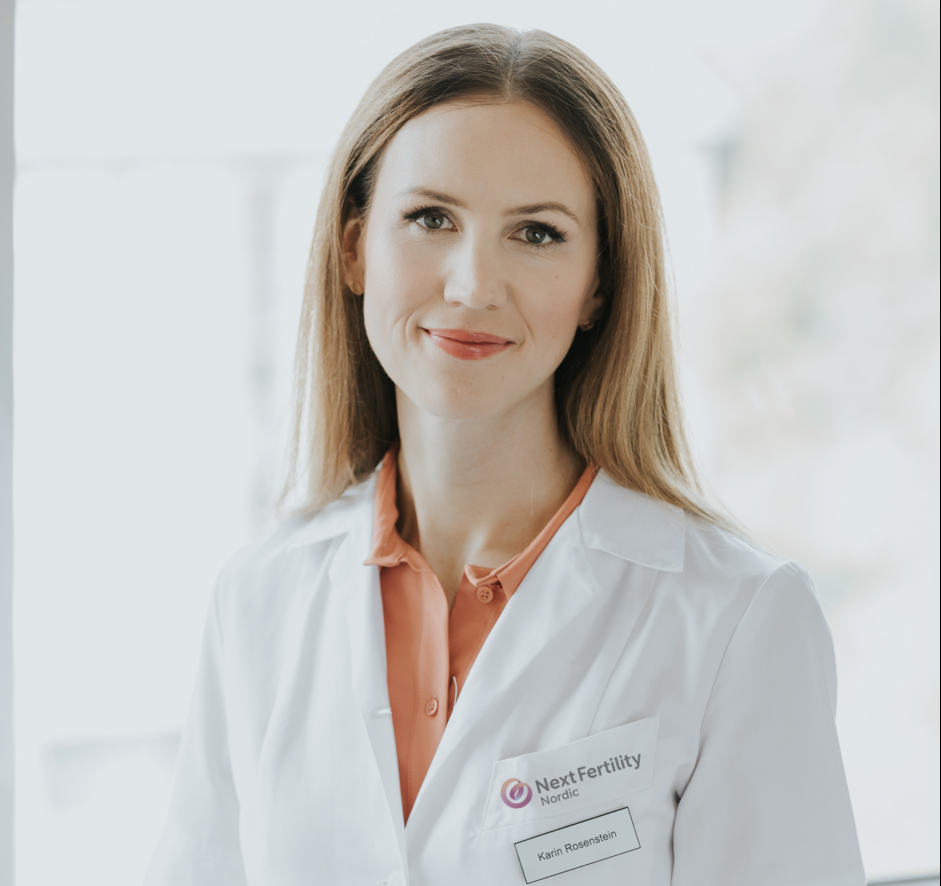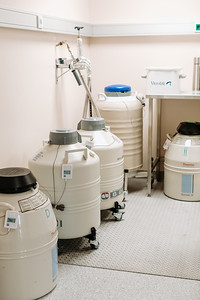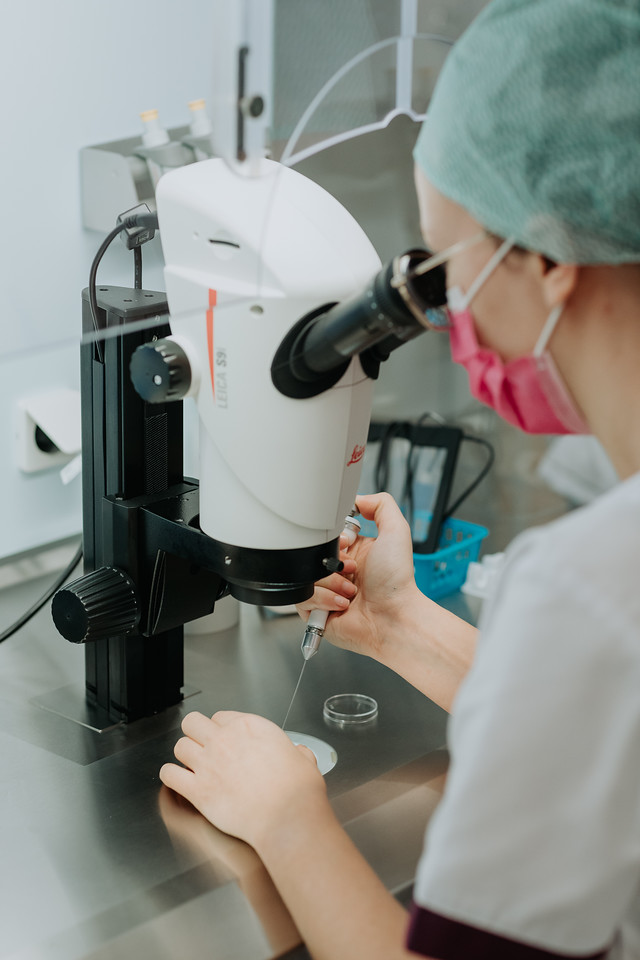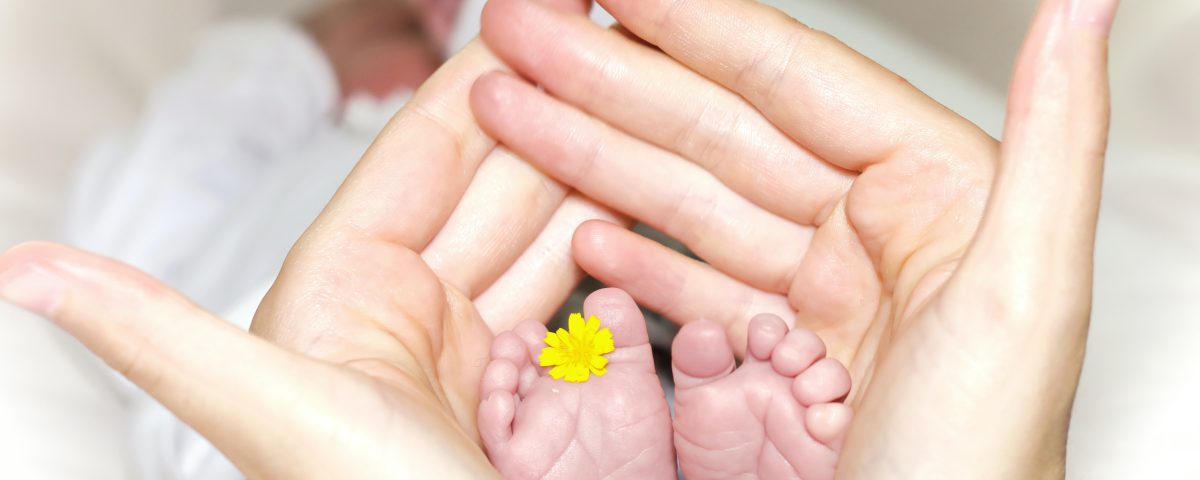Blog post written in cooperation with Enhanced Fertility Program
Estonia is becoming one of the top destinations for patients seeking fertility treatments. It is a well regulated market, and the clinics undergo regular inspections to maintain a high standard. In this interview, Karin Rosenstein, PhD, General Manager of Next Fertility Nordic explains everything about egg and sperm donation in Estonia.
In which cases using donor eggs and sperm are recommended?

Using donor eggs or sperm isn’t usually the first option, and in many cases, the families already have a long history of numerous IVF treatments before the doctor recommends using donor gametes. Donor eggs are needed for example when the woman has premature ovarian failure (POF) or if the quality and number of eggs have declined with age. In most cases, women above 43 years need donor eggs to achieve a healthy pregnancy and baby.
Donor sperm is used for example in the case of azoospermia (a condition in which there’s no measurable sperm in a man’s semen), or can be recommended when the sperm quality is very low and there are no good quality embryos developing after numerous IVF cycles.
In addition, there is an increasing number of single women who decide to have a baby with the help of donor sperm. In Estonia, single women can use donor sperm for IUI or IVF/ICSI treatments.
Does Next Fertility Nordic have an egg and sperm bank?

Next Fertility Nordic has its own egg and sperm bank with a large selection of donor eggs and donor sperm to help families who need donor gametes for their IVF treatment. Our IVF lab has extensive experience in freezing and storing gametes and we use the most modern methods to provide a high survival rate of the oocytes and sperm. Frozen gametes are stored in special cryopreservation tanks which are filled with liquid nitrogen to maintain a stable temperature of -196° and monitored constantly. Our biobank is part of one of the largest high-quality biobanks in Europe – GAMETIA.
How are the donors selected?
We select our donors very carefully. By law, adult man of up to 40 years of age and adult woman of up to 35 years of age who is mentally and physically healthy, can become gamete donor. In our clinic, egg donors are mostly aged between 20 and 32 and sperm donors are aged between 20 and 35. We counsel and support our donors throughout and after participating in the donation programme. There are initial interviews, psychological counselling and medical evaluation included. We also pay good attention to the lifestyle and habits of the donor candidates. For example, we do not include smokers as many studies have shown that smoking may have a negative impact to fertility and also IVF outcomes.
All our donor candidates undergo a health examination and genetic screening (karyotype, genetic carrier test). Donors are also tested for infectious diseases (HIV, HBV, HCV, syphilis, chlamydia, Neisseria gonorrhoeae, Trichomonas vaginalis, HSV2 Igg, CMV Igg/Igm, HTLV-1 and HTLV-2).
Can the recipients choose the donors? What information is disclosed about the donors?
In Estonia, gamete donation is locally anonymous (except when a close relative decides to donate), and the following information is published about the donor: nationality, education, marital status, skin colour, height and weight, hair and eye colour, and whether the donor has any children. The personal data of a donor are not disclosed on artificial insemination, except in the case where the oocyte donor is a relative. Our clinic also cooperates with other biobanks (for example Cryos International and European Sperm Bank) from where patients can also choose open (ID-release) donor gametes. In that case, the donor remains anonymous for our clinic, but the future child has the opportunity to contact with biobank to ask for the donor’s identity.
How is the Estonian legislation around that topic?
In Estonia, the use of donor cells in fertility treatment is regulated by the Artificial Insemination and Embryo Protection Act. The law describes the rights and obligations of donors. A donor has the right to: remuneration for gamete donation, and non-disclosure of the fact that he or she is a donor. Donors are required to undergo a medical examination. A donor does not have the right to establish preconditions for the use of the gametes donated by him or her. A donor does not have the right to require the establishment of the identity of the mother, father or child, respectively. A donor does not have the right to require that he or she be declared the mother or father of the child. The gametes obtained from one donor may be used in order to conceive babies to be born to up to six different women in Estonia.
How is the treatment for the egg donors?
After the initial examination, egg donors undergo ovarian stimulation similar to IVF preparation which includes also regular injection. Oocytes are collected during a short procedure (15-30 min) under sedation. Usually, donors stay at the clinic for 2 hours after the procedure and it is not recommended to drive on the same day.
How is the treatment for recipients?

First, our doctors and donor coordinators help our patients to choose the most suitable donor. As we have an active donor program and our own egg bank, we can find suitable donor gametes very quickly. After signing the necessary consent forms, the IVF treatment with donor gametes can be planned after one month. As there is no need for ovarian stimulation, the recipient’s treatment plan includes only the preparation of the uterus (endometrial lining) to be receptive during the embryo transfer.
In many cases, patients from abroad can do the initial consultations online and the necessary screenings and scans are done by their local gynaecologist. Our patient coordinators help to keep contact between the patient and medical staff.
We also support our patients from abroad to select accommodations and several hotels in Tallinn provide discounts to our customers.
Are the clinical results better when donor eggs are used?
The pregnancy results using donor gametes are significantly higher. Next Fertility Nordic clinic has >60% clinical pregnancy rate using donor eggs.

